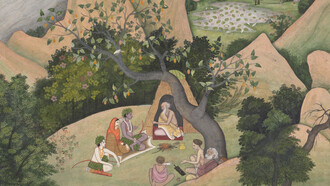In the digital age of swipes, texts, and emojis, modern dating has given rise to a lexicon that reflects the complexity and nuances of interpersonal relationships. Terms like “ick,” “red flags,” “green flags,” and “beige flags” are not just catchy phrases—they embody sociological underpinnings that resonate deeply with the way we perceive compatibility, boundaries, and attraction. This article explores these concepts, their origins, and their sociological significance while anchoring them in contemporary dating culture.
The term “ick” gained mainstream attention through reality TV, particularly the British dating show Love Island. Contestants used it to describe an inexplicable feeling of aversion that can arise even in promising romantic connections. Though the phrase existed in slang earlier, its pop-cultural dissemination reflects how shared experiences in relationships are increasingly articulated through media-driven vocabulary.
Some common examples of behaviours that might trigger the “ick” include:
Physical habits: the way someone eats (e.g., chewing with their mouth open, slurping soup loudly) or their posture (e.g., sitting awkwardly on a chair).
Social faux pas: saying something socially inappropriate, like oversharing personal details too early or making an off-colour joke in a group setting.
Unusual quirks: certain ways of speaking, such as using baby talk or mispronouncing common words repeatedly.
Over-enthusiasm: being excessively eager, such as sending multiple texts in a row or planning future events too soon in a relationship.
Hygiene concerns: seeing a partner’s dirty socks on the floor, noticing unkempt nails, or observing habits like nose-picking.
Clumsy moments: struggling to parallel park, tripping over nothing, or spilling a drink on themselves.
Interactions with animals or children: Acting awkwardly around pets or being dismissive of kids in social settings.
Demeanour changes: watching someone dance poorly at a party or exhibit overly dramatic reactions to minor inconveniences.
While these behaviours may seem trivial, they reveal a fascinating interplay between personal preferences and societal standards. The “ick” is often less about the specific act and more about how it disrupts an imagined future or undermines an idealized narrative.
“Red flags” and “green flags,” much like their origins in traffic signals where red signifies stop and green signifies go, serve as shorthand for evaluating behaviours in relationships. These terms became popularized through social media, self-help literature, and therapy discourse, reflecting a growing awareness of relational health and compatibility.
“Red flags” signal warning signs that may indicate deeper issues, such as consistently speaking negatively about all ex-partners, avoiding accountability for mistakes, overstepping boundaries, frequent displays of anger or jealousy, or patterns of inconsistency like cancelling plans or ghosting. These behaviours often undermine trust, a cornerstone of healthy relationships, and highlight the importance of communication and emotional safety.
Conversely, “green flags” represent desirable traits and behaviours that foster connection and mutual respect. Examples include being honest and transparent about feelings, demonstrating kindness and empathy in difficult situations, encouraging personal growth and independence, resolving conflicts calmly and respectfully, and maintaining consistent effort in showing care and affection. These qualities underscore the increasing emphasis on emotional health, mutual respect, and reciprocity in modern relationships, aligning with evolving societal expectations around partnership dynamics.
A newer addition to this relational vocabulary is the concept of “beige flags,” a term popularized on platforms like TikTok. Beige flags refer to traits or behaviours that are ambiguous—neither particularly attractive nor off-putting—but reflective of a partner’s unique quirks. Examples include a tendency to wear the same outfits repeatedly, sticking to a predictable morning routine like eating the same breakfast daily, an unusual obsession with a niche hobby such as collecting bottle caps, or overusing specific catchphrases or memes in conversations. These behaviours may not raise alarms like red flags or foster connection like green flags but often reveal idiosyncrasies that add texture to a relationship.
Together, these terms illustrate how colloquial expressions have evolved to address nuanced emotional and relational phenomena, becoming embedded in the cultural consciousness. They provide a framework for individuals to articulate and evaluate their experiences, offering a lens through which to interpret compatibility, boundaries, and attraction in an increasingly complex dating landscape.
The “Ick” and the sociology of attraction
The “ick” refers to a sudden, visceral feeling of repulsion toward someone who was previously attractive. It often emerges from small behaviours or habits that contradict one’s idealized image of a partner. This phenomenon can be understood through Erving Goffman’s concept of impression management, where individuals perform roles in social settings to maintain favourable impressions. The “ick” arises when a partner’s actions break the continuity of this performance, revealing something unpolished or unexpected.
Goffman’s theory suggests that in social interactions, individuals project an image that aligns with social expectations, carefully curating their behaviour to appear competent, attractive, or likable. In romantic relationships, this performance is particularly heightened during the initial stages, as both parties strive to present their best selves. The “ick” represents a disruption in this process, where a partner’s behaviour or characteristic momentarily shatters the illusion of compatibility. This might be something as trivial as a loud sneeze, an awkward way of running, or a cringe-worthy attempt at humour, but it is enough to puncture the carefully constructed image that had been built.
This reaction is often less about the actual act itself and more about its symbolic implications. For example, seeing someone fumble clumsily with chopsticks might seem inconsequential, but it could invoke a subconscious sense of mismatch if it clashes with an idealized vision of confidence or grace. Similarly, behaviours such as overuse of emojis in texts, an overly enthusiastic laugh, or the way someone interacts with waitstaff might appear harmless on the surface but trigger a deeper, instinctive aversion if they contrast with one’s internalized standards or aspirations for a partner.
The “ick” also speaks to the fragility of early-stage relationships, where perceptions are often based on limited information. In these contexts, small details take on exaggerated importance, as individuals attempt to fill in gaps about their partner’s personality or suitability. The “ick” can act as a protective mechanism, signalling potential incompatibilities before deeper emotional investment occurs. It may reflect a heightened sensitivity to imperfections, shaped by societal norms and the abundance of choices in modern dating, where alternatives often feel just a swipe away.
Importantly, the “ick” is deeply subjective and culturally informed. What triggers it for one person may be endearing to another, revealing the interplay between personal preferences, cultural scripts, and societal ideals. For instance, a behaviour like singing along loudly to a favourite song might be interpreted as playful and charming by someone who values spontaneity, but as immature or embarrassing by someone who prioritizes decorum.
Furthermore, the “ick” can highlight the tension between authenticity and performance in relationships. While Goffman’s theory acknowledges the inevitability of role-playing in social life, it also implies that cracks in these performances—moments where people act unguardedly—can reveal genuine aspects of their personality. The “ick,” then, may represent not just an aversion to a specific behaviour but an internal conflict: the discomfort of reconciling the unvarnished reality of another person with the idealized fantasy constructed in one’s mind.
In essence, the “ick” underscores how fragile attraction can be when filtered through societal expectations, personal biases, and the curated nature of modern relationships. By understanding it through a sociological lens, we gain insight into how deeply our perceptions of others are influenced by cultural narratives and the constant negotiation between authenticity and idealization in romantic dynamics.
With special thanks to Paula Turner, Lily Turner, and Patrycja Kaminska, who acted as co-researchers and alerted me to the social media and interactive dating phenomena of ick.












